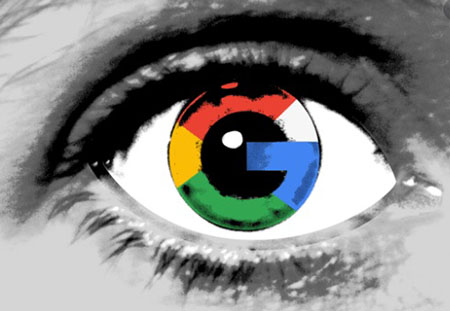by WorldTribune Staff, May 13, 2021
Corporate WATCH
Big Tech is watching you.
“The FBI knows that Jacob Travis Clark of Colorado was inside the prohibited environs of the U.S. Capitol on Jan. 6 exactly from 2:15 p.m., the riot’s approximate start time, to 3:25 p.m.,” Rowan Scarborough reported May 12.
“The snitch: Google technology.”
Federal agents were able to track Clark’s cell phone location to show that his gmail account was in use at the Capitol building area on Jan. 6.
 An FBI affidavit on Clark’s arrest details how government officials relied heavily on Google tracking information to find their man. It also reveals how powerful such technology has become.
An FBI affidavit on Clark’s arrest details how government officials relied heavily on Google tracking information to find their man. It also reveals how powerful such technology has become.
“Google estimates device location using sources including GPS data and information about nearby Wi-Fi access points and Bluetooth beacons,” the affidavit states, according to Scarborough’s Washington Times report.
“This location data varies in its accuracy, depending on the source(s) of the data. As a result, Google assigns a ‘maps display radius’ for each location data point,” the affidavit continues.
“Thus, where Google estimates that its location data is accurate to within 10 meters, Google assigns a ‘maps display radius’ of 10 meters to the location data point. Finally, Google reports that its ‘maps display radius’ reflects the actual location of the covered device approximately 68% of the time. In this case, Google location data shows that a device associated with CLARK‘s above listed emails was within the U.S. Capitol building from approximately 2:15 pm to 3:25 pm.”
Big Tech location tracking is proving to be an essential tool in the hunt to round up Trump supporters who wandered into the Capitol building that day.
Presumably that same technology could also be used to track down real domestic terrorists who in the past year have cone billions of dollars of damage nationwide and whose stated goals are to topple the U.S. system of constitutional government and all its Judeo-Christian underpinnings. But the U.S. Department of Justice has other priorities.
“The vast majority of participants in the Capitol unrest carried mobile devices with them and had them powered on, which makes it possible for law enforcement agencies to determine the movements of the cellphone’s owner,” the website Quartz reported on Jan. 20.
Disabling the tracking capabilities does nothing to prevent the pinpointing, the website noted.
“Even if users have location services, cellular data, and Wi-Fi disabled, law enforcement has access to technology that can determine the location of a device at a specified time.”
Location tracking is one of several ways the FBI uses the new norms of today’s technologically-connected society to build a case against the alleged trespassers, Scarborough states.
“Agents have used tipsters to generate names or found them on Twitter, Facebook and other networking platforms,” Scarborough writes. “They have submitted images for facial recognition technology. In one case, a suspect on parole went through the Capitol still wearing his GPS ankle bracelet monitor. The arrest toll so far stands at more than 400 people.”
Even as the progressive establishment celebrates the FBI’s tireless hounding of the Jan. 6 “enemies of democracy,” some voices are expressing discomfort with the long-term consequences of embracing a Big Tech-enabled Federal Surveillance State.
“[A]t another level, it is crucial for all to be aware of how much online information exists and how easy it is to connect the dots,” Darrell M. West of the Center for Technology Innovation wrote in a Jan. 19 article for the globalist leftist think tank the Brookings Institute. “Once the investigation about the Capitol insurrection is completed and perpetrators brought to justice, there needs to be a national conversation about the wealth of material that exists about everyone, including law-abiding citizens, and how that information is being used.”
“The easy identification of insurrectionists should put everyone on guard about how much online personal data is available about all Americans,” West concluded.
It’s hardly a convincing call to civil libertarian vigilance. Harness all the technology of modern life against these people I don’t like, but please stop after that. Alas, that’s not how precedents work.
INFORMATION WORLD WAR: How We Win . . . . Executive Intelligence Brief
